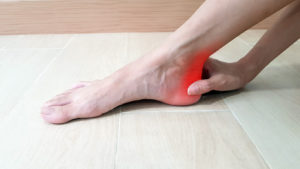Tendonitis is a common condition that many people experience at some point in their lives. Whether you are an athlete or just someone who enjoys being active, understanding tendonitis can help you recognize its signs, seek proper treatment, and prevent it from becoming a persistent issue. In this article, we will break down the causes, symptoms, and risk factors associated with tendonitis. What is Tendonitis? Tendonitis, often referred to as "tendinitis," is the inflammation or irritation of a [Read More]
Tendonitis Treatment Palm Beach County
Tendonitis vs. Tendinosis: Differentiating Between Acute and Chronic Tendon Conditions
Tendons are made of collagen, a protein that gives them both strength and flexibility. This combination allows tendons to withstand tension while helping the body to move. They are not only located in your arms and legs; tendons are everywhere, from your neck to your toes, playing a part in every motion. Some tendons are more prone to problems than others. The Achilles tendon, connecting your calf muscle to your heel, is a common trouble spot. The rotator cuff tendons in the shoulder and the [Read More]
Everything You Need To Know About Tendonitis Treatment
Tendons are strong connective tissues connecting muscle to bone. These connective tissues are responsible for the mobility of your limbs. They also help the muscles by absorbing the impact caused by running, jumping, and other movements. Tearing or overstretching a tendon could lead to tendonitis and may take a long time to heal. What Is Tendonitis? Tendonitis occurs when the tendons become inflamed due to repetitive activity, overuse, or aging. It typically affects larger joints, like the [Read More]
Have You Been Diagnosed with Tendonitis? What You Should Know
Tendons are the thick, fibrous cords that connect your muscles to your bones. Albeit tendons are very strong and flexible, they are not designed to stretch easily. This limited flexibility makes them especially susceptible to degeneration and injury. If a tendon becomes irritated or overstretched, it can become inflamed, causing a condition referred to as tendonitis to develop. Let’s learn more about tendonitis, particularly its different types, symptoms, risk factors, and treatment [Read More]
Risk Factors for Developing Tendonitis
Tendons are the tough fibrous bands that connect your muscles to your bones. Although they are strong, tendons have less elastic tissue and are therefore not designed to stretch at all. This limited elasticity is what makes them susceptible to injury. Repetitive strain, overuse, and overstretching can cause a tendon to get inflamed, resulting in a condition referred to as tendonitis. The heels, knees, shoulders, elbows, and wrists are the most common sites for tendonitis. There are a [Read More]






